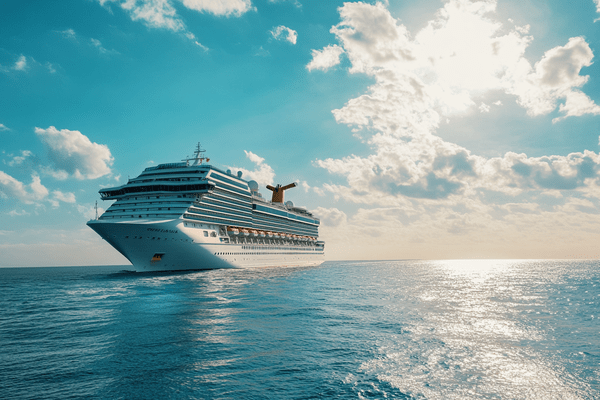
Our November 2004 article discussed the U.S. Court of Appeals for the Fifth Circuit's decision in Spector v. Norwegian Cruise Lines, Ltd., 356 F.3d 641 (5th Cir. 2004), which held that the Americans With Disabilities Act (ADA) does not apply to foreign-flag cruise ships serving U.S. ports. That decision stood in stark contrast to the decision of the Eleventh Circuit in Steven v. Premier Cruises, Inc., 215 F.3d 1237 (11th Cir. 2000), wherein that court held just the opposite.
To resolve the conflicting circuit court rulings, the Supreme Court granted certiorari and, in June 2005, theoretically resolved the split by holding that foreign cruise lines that dock at U.S. ports must provide better access to handicapped people. Spector v. Norwegian Cruise Line, Ltd., 125 S. Ct. 2169 (2005). However, the various Justices' opinions fell short of specifically stating what kind of modifications must be made to foreign cruise ships to bring them into compliance with the ADA.
In a decision reminiscent of the split between the underlying Fifth and Eleventh Circuits, the Court's 6-3 ruling, authored by Justice Kennedy, writing for the majority, joined by Justices Stevens, Souter, Ginsburg, and Breyer, said Congress clearly intended for Title III of the ADA to apply to foreign cruise lines even though the 1990 legislation is silent on the issue. Justice Kennedy wrote:
To hold there is no Title III protection for disabled persons who seek to use the amenities of foreign cruise ships would be a harsh and unexpected interpretation of a statute designed to provide broad protection for the disabled.
But Kennedy also stated to the extent that it creates "too much" international discord or disruption of a ship's internal affairs, cruise lines need not comply with the ADA under a provision of the statute that calls only for "readily achievable modifications." In contrast, Justice Scalia's dissenting opinion, joined by Chief Justice Rehnquist and Justice O'Connor, indicates that they would hold that Title III does not apply to foreign-flagged cruise ships at all because it affects the internal order of foreign-flag cruise ships and exposes them to conflicting international obligations.
Arguing that extending the federal law to foreign ships would wrongfully create international discord because Congress did not explicitly call for it, Rehnquist and O'Conner joined Scalia in averring that the Court's ruling should leave no opening for ships to be required to change their amenities to fit the laws of each country they visit. Justice Thomas, in a separate opinion concurring in part, dissenting in part, and concurring in the judgment in part, agreed that those applications of ADA which do not pertain to internal affairs do apply to foreign-flag vessels.
The issue then becomes: To what extent does the ADA actually apply to aid its anticipated beneficiaries? Here, as the Justices' controvertible writings reveal, the Court is even further divided. The controlling opinion of three Justices—Kennedy for a plurality, joined by Stevens and Souter—holds that the ADA applies except to the extent the statute would otherwise require "permanent," "significant," "structural" changes to the "basic ship design and construction." That opinion may be perceived as controlling because it is the narrowest holding.
Justice Thomas, as noted, agreed that the ADA applied to foreign-flag cruise ships, but he joined the dissenters in saying that under federal law, the modifications required clearly did not extend to changes to a ship's "physical structure." Against this, Justice Ginsburg's concurring in part and concurring in the judgment, joined by Justice Breyer, would have held that the ADA applies except to the extent that the ADA imposes requirements that conflict with international treaty undertakings, raising concerns of extraterritorial application of domestic law and domestic regulations that would, for instance, conflict with the United States obligations under the International Convention for the Safety of Life at Sea. 1
Hence, the decision is an important, although not total, victory for disabled persons. There can be no doubt that the Supreme Court has clearly ruled foreign-flag cruise ship owners must make reasonable accommodations for disabled passengers as required by federal law. The cruise line industry, which denied that it discriminates against disabled passengers, argued that it should not be forced to retrofit older ships to fully accommodate disabled persons. The Supreme Court's decision arguably affords some solace to cruise ship owners in that the owners who do not wish to incur the costs of making their ships fully accessible may not need to make the most expensive, structural changes to their ships that the ADA might otherwise require.
A substantial question remains as to exactly what changes cruise ship owners will be required to make to their vessels in order to bring them into compliance with the ADA. The Supreme Court's reversal and remand of the Fifth Circuit's decision to dismiss Spector means that the Fifth Circuit will now reexamine those issues should the disabled passengers who originally filed suit now proceed to trial to prove discrimination.
Douglas Spector claimed he was charged more for his viewless interior handicapped-accessible cabin than other passengers who had purchased exterior ocean view accommodations. He also complained that the public restrooms and most of the ship were wheelchair inaccessible and that he was treated as an annoyance. In an industry where the North American cruise lines yearly carry 7.1 million passengers on 185 ships operating from U.S. ports, the Supreme Court's decision means that the case will now resume its heavily laden course with significant consequences for disabled persons and the cruise line industry, as now once again Spector must navigate judicial waters fraught with emotional, economical, and extraterritorial concerns.
Opinions expressed in Expert Commentary articles are those of the author and are not necessarily held by the author's employer or IRMI. Expert Commentary articles and other IRMI Online content do not purport to provide legal, accounting, or other professional advice or opinion. If such advice is needed, consult with your attorney, accountant, or other qualified adviser.
Footnotes

